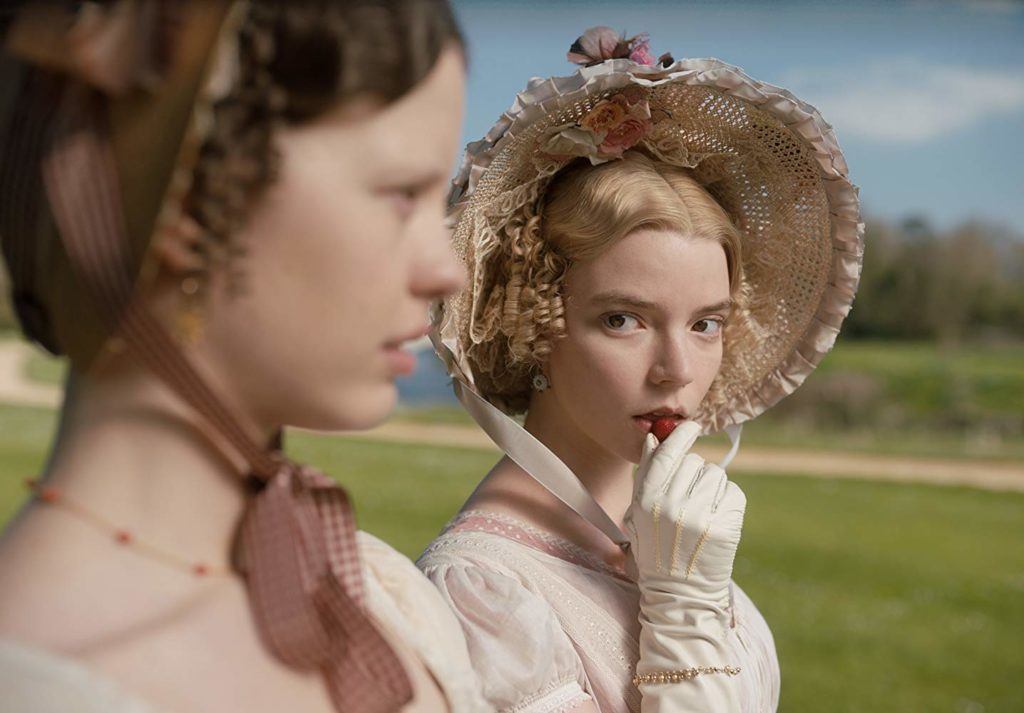Emma

Mia Goth and Anya Taylor-Joy star in EMMA. (Photo: Focus Features)
The new film version of Emma not only reinforces Jane Austen’s legacy as the forerunner of contemporary romantic comedy. It showcases again how the author’s best works can be adapted with a fresh set of eyes and retain its playfully satirical spirit.
Whether we really needed a new cinematic version of the oft-told 19th romantic misadventures of British aristocrats is debatable, but this stylish update marks a striking debut for filmmaker Autumn de Wilde, whose background is primarily in music videos. It’s also fervently faithful to the text, meaning it won’t yield many surprises for the book’s legions of devoted fans.
Nevertheless, the film could make for an intriguing companion piece to Greta Gerwig’s recent adaptation of Little Women — in both instances featuring female directors adapting female authors — in comparing distinct visions alongside varied approaches.
At its core, this is a coming-of-age story centered on the title character, Emma Woodhouse (Anya Taylor-Joy), a socioeconomically spoiled young woman who specializes in manipulating the courtships and romantic dalliances of her friends and acquaintances, frequently at the expense of her own fulfillment.
Living in the family estate with her hypochondriac father (a scene-stealing Bill Nighy), Emma has good intentions in her matchmaking attempts, regardless of how clumsy the outcomes. Her meddling practically forces her friend Harriet (Mia Goth) to dump her farmer boyfriend in favor of a vicar (Josh O’Connor).
The men in Emma’s life have progressive attitudes for the period. “It’s always the lady’s right to decide on the degree of acquaintance,” explains impetuous Frank Churchill (Callum Turner), who has eyes for Emma despite an engagement. Then there’s George Knightley (Johnny Flynn), her dashing neighbor who’s both critical and supportive of Emma’s immature actions.
Handsomely mounted and confidently assembled, Emma is visually enchanting right from the opening frame, with lavish costumes and sets.
Rookie screenwriter Eleanor Catton gently pokes fun at the pretentions of its setting while generally capturing the acerbic mischief and breezy amusement of the novel. The sharp-tongued dialogue and spirited performances create some fascinating character dynamics. Taylor-Joy (Split) again showcases her versatility in the title role.
The deliberately paced film ultimately elicits more wry smiles than big laughs, and it lacks a deeper emotional grip. Yet it should serve to introduce a new generation to the source material, which retains its charm more than two centuries later.
Rated PG, 125 minutes.